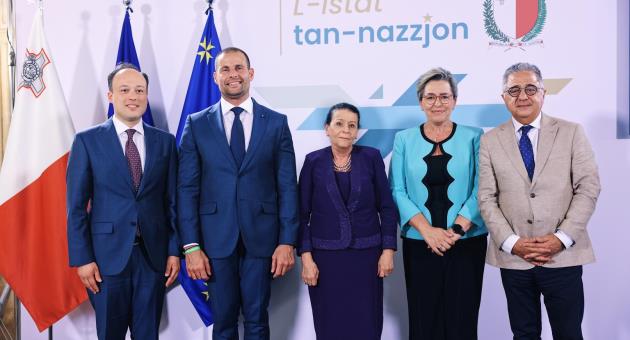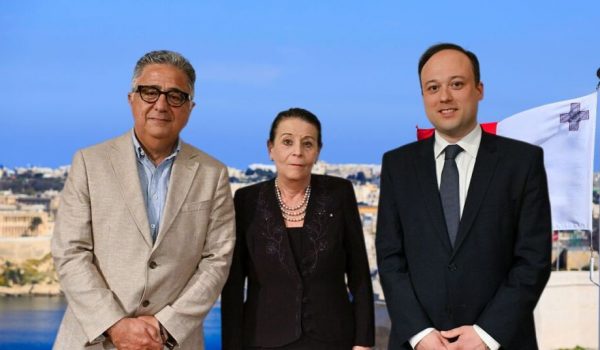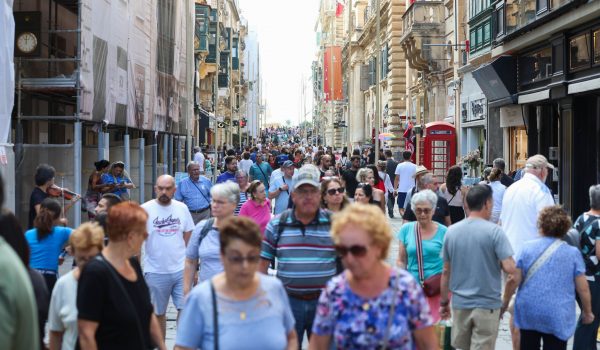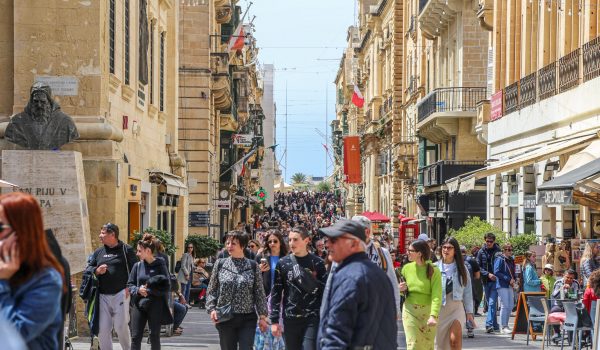
President Myriam Spiteri Debono expressed her concern at the amount of abstentions from voting in the recent elections
The President delivered the closing speech during an event where the results of the fourth edition of the annual national survey of the State of the Nation, commissioned by the Office of the President, were presented.
The survey covered various aspects that affect people’s lives, including rights, standard of living, expectations from their jobs and careers, personal decisions, beliefs and religion, the nation and language, politics, communication, and concepts like justice, equality, solidarity, and freedom, as well as multiculturalism, the President said.
Regarding the part that deals with politics, it emerged that a third of the population doesn’t care or cares very little about politics. “We must acknowledge and admit today, fifteen days after the elections on June 8th, that what the survey indicated was reflected in the abstentions that occurred in the elections held fifteen days ago.”
“When comparing the reactions to the results, the survey makes you stop, think, and ask: ‘What is being said?’ Are these abstentions saying that people don’t care about politics? If I don’t care, or if I no longer care, what led to this? And this point, I must say, worries me a lot. It worries me because, given the small size of our country, we are all interconnected, and I believe that no citizen can abdicate their duty towards the collective of all citizens together and should take an interest, and where they see things not going well, they should recommend and act.”
The President said that the most noticeable gap, also evident from certain questions, is significant among young people. “So, although the voting age has been lowered to sixteen and, thankfully, we have seen some young people who have come forward, still, while we are giving them a key to start participating from a young age, have we reached them yet? What can we say, that the third who did not vote or who show that they don’t care are not satisfied with the two major parties? Are these people looking for a new church or new churches? How do young people, in particular, feel about this? Is there enough synergy between the people and politics? And if there is a void because there are those who do not identify with the existing structures, are we prepared to ensure that we try to give a voice to everyone, even if this requires us to make changes to the country’s highest law?
“Respect, the values of justice, equality, solidarity, and freedom, as revealed by the survey, are still primarily emphasized and taught within families. In fact, it seems that this is roughly 75/25%, which indicates that perhaps we need to see that in our schools, we place a bit more emphasis on social aspects, on what, so to speak, involves the development of thought, even philosophical thinking. And when I say this, I don’t mean some sort of academy, because we had one of the greatest scholars, Professor Edward Debono, who showed through his various works that there are methods for us to also teach the science of thinking.”
Besides this, “I feel that these concepts I just mentioned-justice, equality, solidarity, and freedom-have different meanings. Not everyone has the same interpretation of them, and perhaps in this type of survey, these different meanings do not come out sufficiently. Sometimes, if you allow me, you almost don’t feel these different meanings.”
She turned to the questions on multiculturalism. “I think one of the questions in this section should have been whether we should ask the Maltese if they are willing to do the jobs for which we are relying on the help and presence of foreigners. I think it is important to ask this question point-blank, especially to those among us who consider them superfluous. Why? Because they have not understood anything yet. They have not understood that if in our country there is a certain affluence that came from opening up education to the public and the children of workers through various governments, if in our country there was also the input of unions and certain wages increased, and our children are therefore not looking at certain sectors that do not yet provide a certain standard of living. But if the economy provided jobs and provided a certain type of work that our children today feel is beneath them – and that is the truth, and I am not saying this in any snobbish way, it is the reality of the facts – they still expect that this work will continue to be done. And by whom is it going to be done if our children today have advanced much further than those types of jobs?”
Source: https://www.independent.com.mt/articles/2024-06-20/local-news/Abstentions-from-voting-worries-me-a-lot-President-says-6736262098



